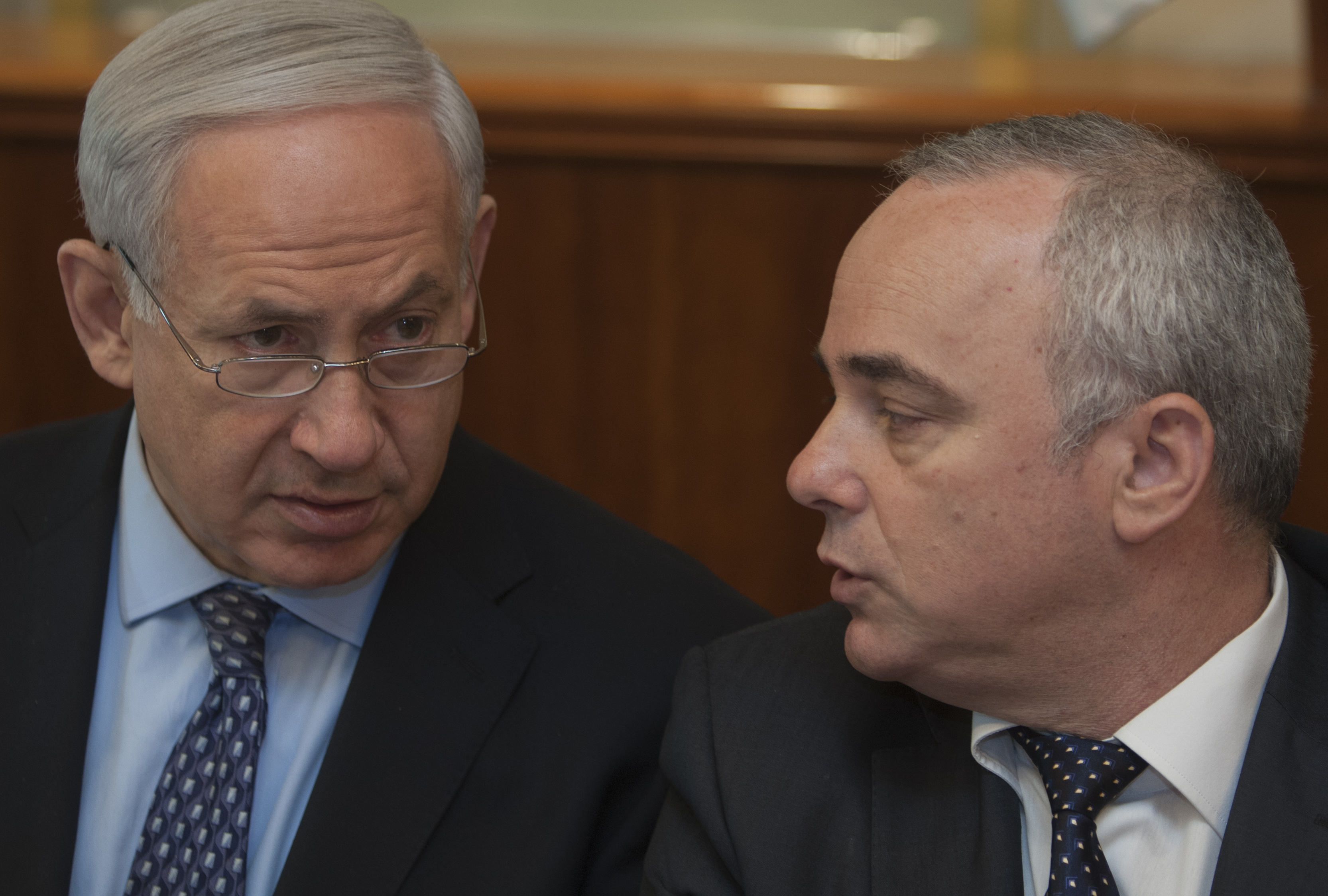Israel issues list of demands for Iran nuclear deal


A free daily email with the biggest news stories of the day – and the best features from TheWeek.com
You are now subscribed
Your newsletter sign-up was successful
Israel isn't one of the six world powers negotiating with Iran for an agreement to prevent Tehran from developing a nuclear weapon, but on Monday, Yuval Steinitz, Israel's minister of intelligence and strategic affairs, nonetheless issued a list of requirements for a final deal deemed "more reasonable" to Tel Aviv.
The specific demands, the first issued by Israel, include that Iran end all nuclear research and development, ship all its enriched uranium out of the country, lower the number of centrifuges below the 6,104 (out of 19,000 currently) agreed to in the framework deal, disclose all previous nuclear research and activities, and shutter its underground Fordo facility, which under the current deal could be used for medical isotope production.
The Israeli demands, echoed by some Republican lawmakers, "would amount to a dramatic rewrite of the proposed accord," notes The Wall Street Journal. "Last week's framework leaves almost no room for negotiators on either side to overhaul the terms in the way Mr. Steinitz called for."
The Week
Escape your echo chamber. Get the facts behind the news, plus analysis from multiple perspectives.

Sign up for The Week's Free Newsletters
From our morning news briefing to a weekly Good News Newsletter, get the best of The Week delivered directly to your inbox.
From our morning news briefing to a weekly Good News Newsletter, get the best of The Week delivered directly to your inbox.
As Steinitz, one of the Israeli government's most strident critics of the Iran talks, was laying out his case in Jerusalem, President Obama was waving off a demand made by Israeli President Benjamin Netanyahu last Friday, that any deal must include a "clear and unambiguous Iranian commitment of Israel's right to exist." That demand "is really akin to saying that we won't sign a deal unless the nature of the Iranian regime completely transforms," Obama told NPR's Steve Inskeep. "And that is, I think, a fundamental misjudgment."
We want Iran not to have nuclear weapons precisely because we can't bank on the nature of the regime changing. That's exactly why we don't want to have nuclear weapons. If suddenly Iran transformed itself to Germany or Sweden or France then there would be a different set of conversations about their nuclear infrastructure. [Obama, to NPR]
Obama is also lobbying for support on the deal from Arab states with tense relationships with Iran, and he has invited the heads of several Sunni Gulf states to Camp David later this spring to discuss the issue. The ground seems more fertile than in Israel. On Monday, Saudi Arabia's U.S. ambassador, Adel al-Jubeir, said his kingdom wanted to see the details before endorsing the final agreement, but expressed "hope there will be a deal based on the principles that the U.S. government has articulated to us."
A free daily email with the biggest news stories of the day – and the best features from TheWeek.com
Peter has worked as a news and culture writer and editor at The Week since the site's launch in 2008. He covers politics, world affairs, religion and cultural currents. His journalism career began as a copy editor at a financial newswire and has included editorial positions at The New York Times Magazine, Facts on File, and Oregon State University.
-
 Local elections 2026: where are they and who is expected to win?
Local elections 2026: where are they and who is expected to win?The Explainer Labour is braced for heavy losses and U-turn on postponing some council elections hasn’t helped the party’s prospects
-
 6 of the world’s most accessible destinations
6 of the world’s most accessible destinationsThe Week Recommends Experience all of Berlin, Singapore and Sydney
-
 How the FCC’s ‘equal time’ rule works
How the FCC’s ‘equal time’ rule worksIn the Spotlight The law is at the heart of the Colbert-CBS conflict
-
 British warship repels 'largest Houthi attack to date' in the Red Sea
British warship repels 'largest Houthi attack to date' in the Red SeaSpeed read Western allies warn of military response to Iranian-backed Yemeni rebels if attacks on ships continue
-
 Houthi rebels claim Red Sea ship attacks
Houthi rebels claim Red Sea ship attacksspeed read Iran-backed Yemeni group vows to escalate aggression towards Israel-linked vessels in revenge for Gaza war
-
 Israel plans next phase of Gaza war as first hostages released
Israel plans next phase of Gaza war as first hostages releasedSpeed read After four-day ceasefire 'we will not stop' until destruction of Hamas, says Israel
-
 Mob storms Russian airport 'looking for Jews'
Mob storms Russian airport 'looking for Jews'Speed Read Plane from Israel surrounded by rioters chanting antisemitic slogans after landing in Russia's Dagestan region
-
 Tuberville's military promotions block is upending lives, combat readiness, 3 military branch chiefs say
Tuberville's military promotions block is upending lives, combat readiness, 3 military branch chiefs saySpeed Read
-
 Ukraine's counteroffensive is making incremental gains. Does it matter in the broader war?
Ukraine's counteroffensive is making incremental gains. Does it matter in the broader war?Speed Read
-
 US commissions first-ever Navy ship in a foreign port
US commissions first-ever Navy ship in a foreign portSpeed Read
-
 British spy chief, Wagner video suggest Prigozhin is alive and freely 'floating around'
British spy chief, Wagner video suggest Prigozhin is alive and freely 'floating around'Speed Read
